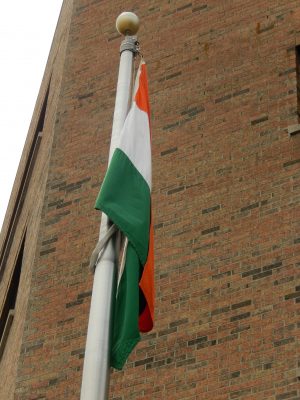Recent comments by Canadian politicians around the ongoing farmers’ protests in India continue to make waves in New Delhi. On December 4, the Indian foreign ministry summoned the Canadian high commissioner to India, Nadir Patel, and “informed that comments by the Canadian Prime Minister, some Cabinet Ministers and Members of Parliament on issues relating to Indian farmers constitute an unacceptable interference in our internal affairs,” according to a statement it released.
In a sign that comments by Canadian Defense Minister Harjit Singh Sajjan and Prime Minister Justin Trudeau, among others, continue to rankle the Indian government to the point that it is willing to wade into a serious diplomatic row with Ottawa, the statement added: “Such actions, if continued, would have a seriously damaging impact on ties between India and Canada.” This is the strongest reaction so far from the Indian government on the issue.
While the Indian foreign ministry had earlier expressed displeasure at Sajjan and Trudeau’s remarks, Minister of External Affairs S. Jaishankar, in an interview with the Hindu on December 2, had tried to downplay it. Interestingly, in that interview Jaishankar said, “We made a statement, which lays out our position very clearly,” suggesting that the matter was closed as far as the foreign ministry was concerned. It is therefore unclear what brought on the demarche to the Canadian High Commissioner two days later, especially since Trudeau has not spoken out again.
Speaking on November 30 about the ongoing farmers’ protests – led by Sikh farmers for Punjab – on the occasion of the birth anniversary of the founder of Sikhism, Trudeau had said: “I would be remiss if I didn’t start by recognizing the news coming from India about the protest by farmers. The situation is concerning. We are all very worried about family and friends. I know that’s a reality for many of you. Let me remind you, Canada will always be there to defend the rights of peaceful protest.” The day before, Sajjan, a Sikh-Canadian of Indian ancestry, had also tweeted out his concern.
Writing about the episode in these pages yesterday, I had noted how historical baggage from a Sikh separatist movement of the 1980s and early 1990s continue to cast a long shadow over India-Canada relations despite obvious strategic congruence when it comes to China and the Indo-Pacific. India suspects that Canada continues to play host to an array of anti-India Sikh forces. Many supporters of the ruling Bharatiya Janata Party (BJP) also seek to frame the ongoing farmers’ protests as a cover for Sikh secessionism and reviving the demand for Khalistan, the term Sikh separatists use to describe an independent homeland for their co-religionists.
The December 4 Indian foreign ministry statement supported the (unofficial) BJP line. It adds “comments [by Canadian political leaders] have encouraged gatherings of extremist activities in front of our High Commission and Consulates in Canada that raise issues of safety and security,” adding that “We expect the Canadian Government to ensure the fullest security of Indian diplomatic personnel and its political leaders to refrain from pronouncements that legitimize extremist activism.” It is unclear how the Indian government has made this determination.
Since coming to power for the first time in 2014, and re-election in 2019, the Narendra Modi government has been extremely sensitive to criticism emanating from abroad, even as it continues to vigorously reach out to the West for strategic and defense support. Curiously, as the Hindu’s Suhasini Haidar noted in a tweet today, India has not summoned the Chinese ambassador even once despite a deadly clash between the two countries in Galwan Valley mid-June that saw the deaths of 20 Indian soldiers and the worst military standoff between the two countries in over half a century.

































